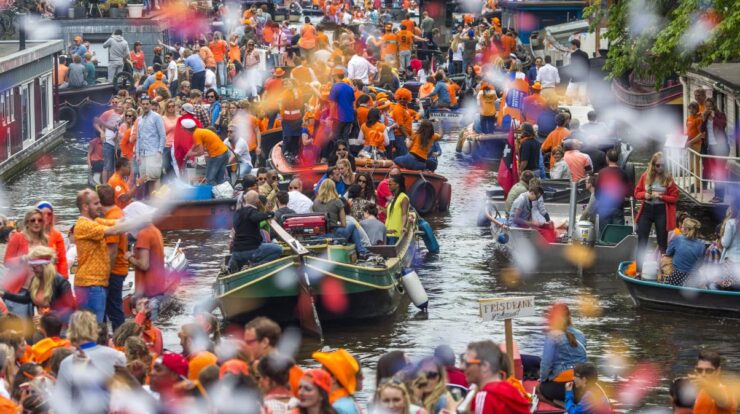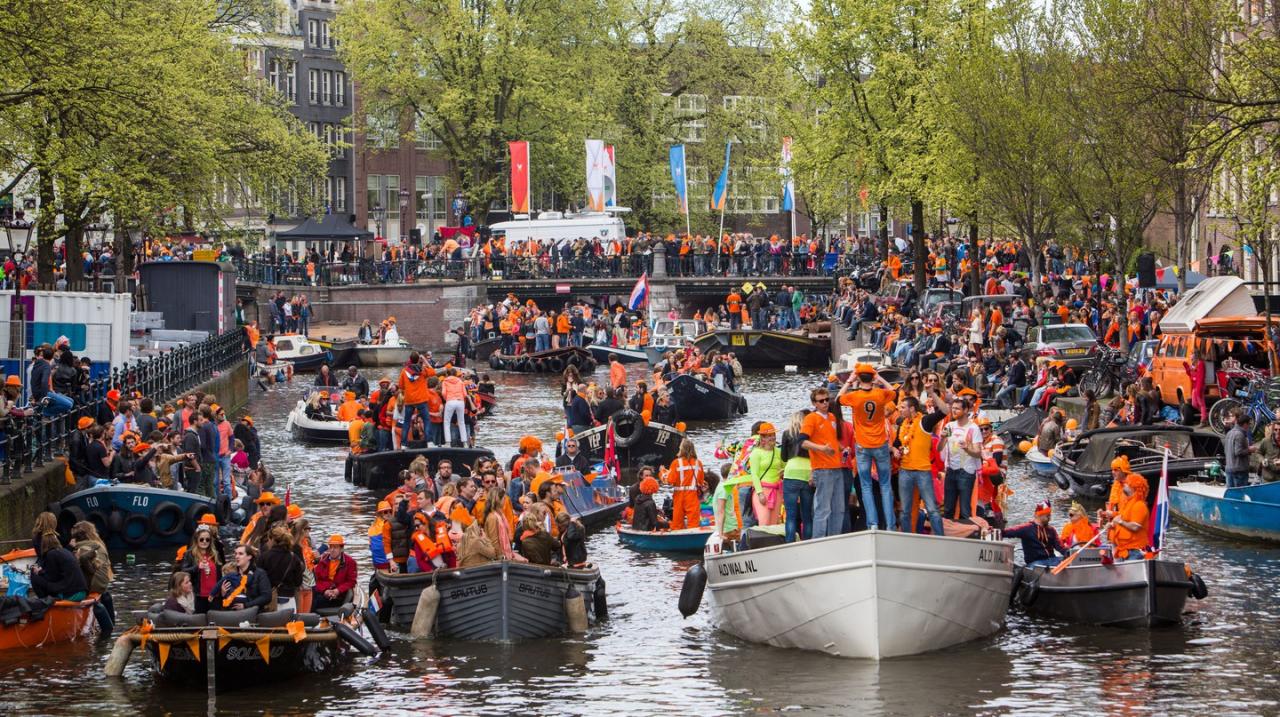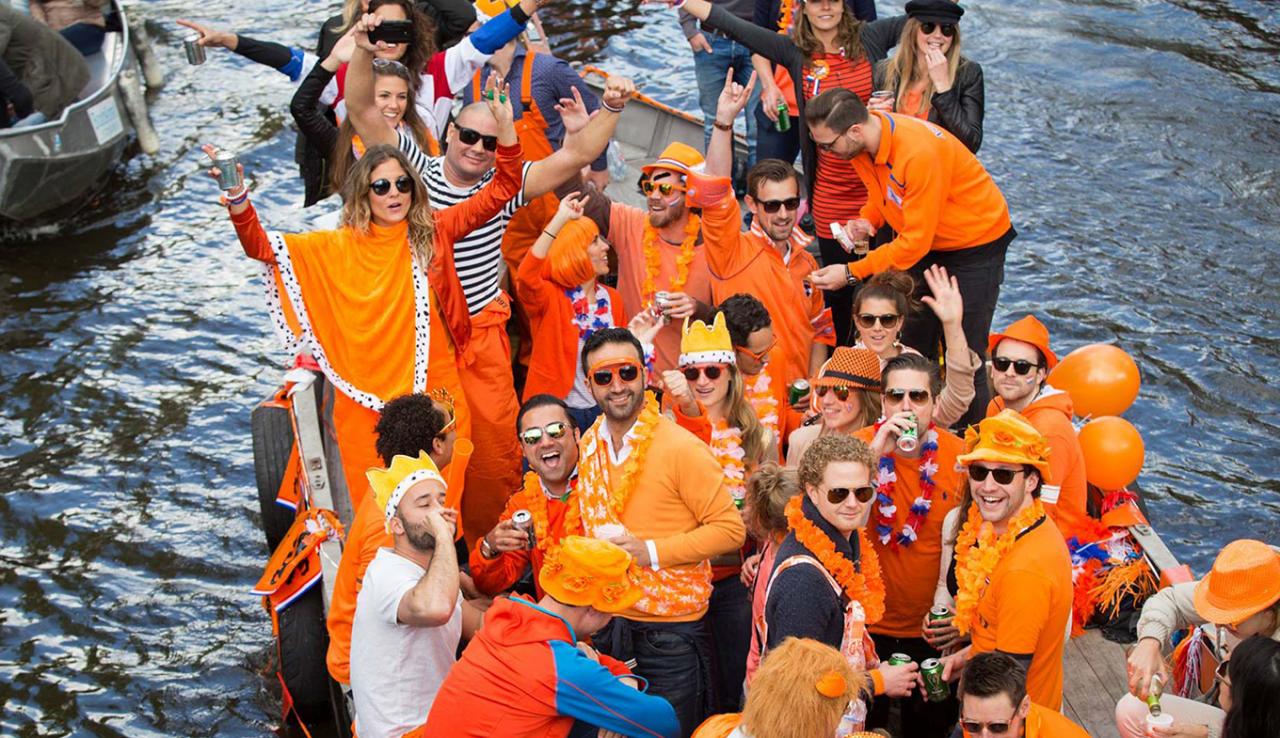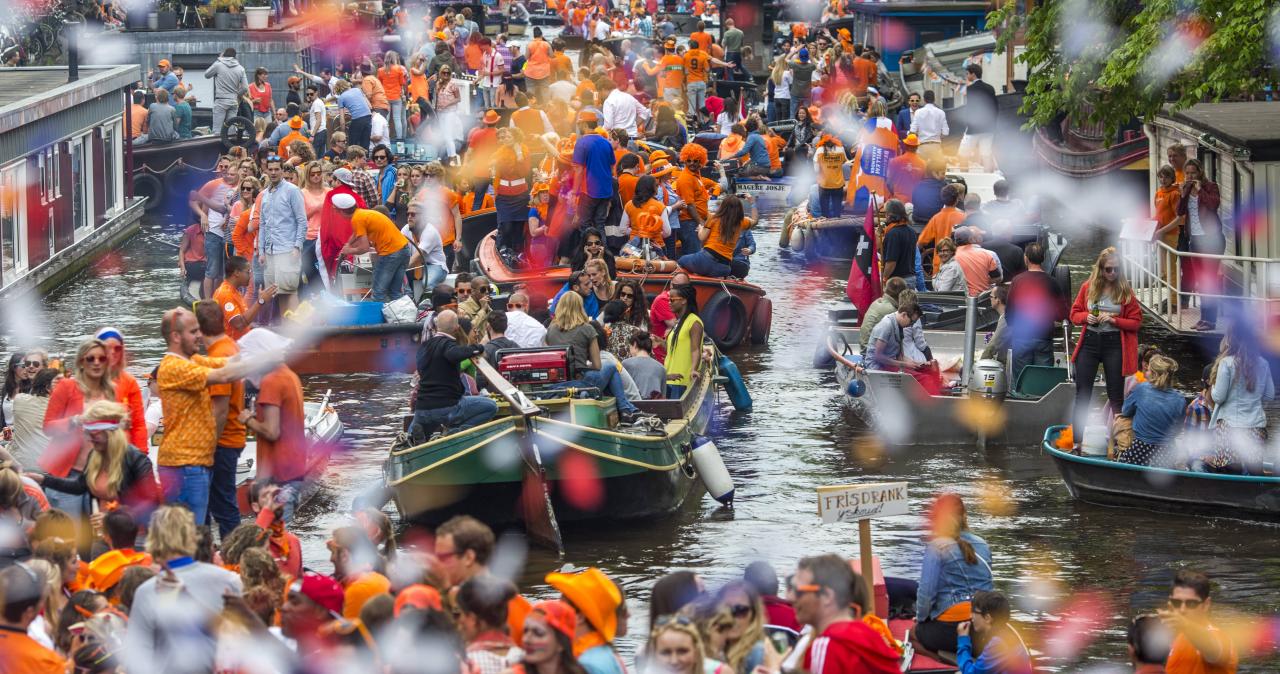
Kingsday Netherlands, a beloved national holiday, is a vibrant spectacle that embodies the spirit of the Dutch people. Rooted in centuries-old traditions, the celebration has evolved into a modern-day extravaganza, captivating locals and tourists alike.
On this special day, the Netherlands transforms into a sea of orange, as people don their finest orange attire, wave flags, and decorate their homes and streets with festive adornments. The atmosphere crackles with energy as flea markets, street parties, and live music fill the air, creating an unforgettable experience that showcases the warmth and hospitality of the Dutch.
Historical Origins and Significance

Kingsday, a national holiday in the Netherlands, commemorates the birth of King Willem-Alexander. Its origins trace back to 1885, when it was celebrated as Princess Day in honor of Princess Wilhelmina’s birthday. After her accession to the throne in 1890, the holiday became known as Queen’s Day.
Upon Queen Juliana’s coronation in 1948, the celebration was renamed Princess Day once again. In 2013, when Willem-Alexander ascended to the throne, the holiday was officially designated as Kingsday.
Traditional Customs and Festivities
Kingsday is celebrated with a festive atmosphere throughout the Netherlands. People dress in orange, the national color, and decorate their homes and streets with orange flags and garlands. Flea markets are set up in many cities and towns, where people sell used goods and handmade crafts.
The streets are filled with live music, parades, and street parties, creating a lively and joyous ambiance.
Music and Entertainment

Music plays a central role in Kingsday celebrations. Traditional Dutch songs and dances, such as the “polonaise,” are performed in the streets. DJs and live bands provide entertainment throughout the day and night. The music adds to the festive spirit and creates a lively atmosphere.
Social and Cultural Impact

Kingsday fosters a sense of national unity and pride among the Dutch people. It is a day for families and friends to gather and celebrate their shared heritage. The holiday also has a significant economic impact, with businesses and vendors benefiting from the increased foot traffic and spending.
Variations and Regional Differences
While Kingsday is celebrated throughout the Netherlands, there are some regional variations in traditions and customs. In the city of Breda, for example, the holiday is known as “Kielegat” and features a unique parade with giant puppets and floats. In the province of Friesland, traditional Frisian games and sports are played during the celebration.
Modern Adaptations and Innovations
In recent years, Kingsday has evolved with the use of social media and technology. People now share their experiences and photos of the celebration online, creating a virtual community of revelers. Additionally, new and innovative ways of celebrating have emerged, such as themed parties and “silent discos,” where participants listen to music through headphones.
Conclusive Thoughts
Kingsday Netherlands is more than just a holiday; it is a testament to the resilience, unity, and cultural heritage of the Dutch people. The celebration serves as a reminder of the nation’s rich history and its unwavering spirit. As the festivities draw to a close, the memories and connections forged during this special day will undoubtedly linger in the hearts of all who have experienced it.
FAQ Guide: Kingsday Netherlands
When is Kingsday celebrated?
Kingsday is celebrated on April 27th every year.
What is the significance of the color orange on Kingsday?
Orange is the color of the Dutch royal family, the House of Orange-Nassau, and is a symbol of national pride.
What are some popular activities during Kingsday?
Popular activities include attending flea markets, street parties, concerts, and watching the traditional boat parade.





